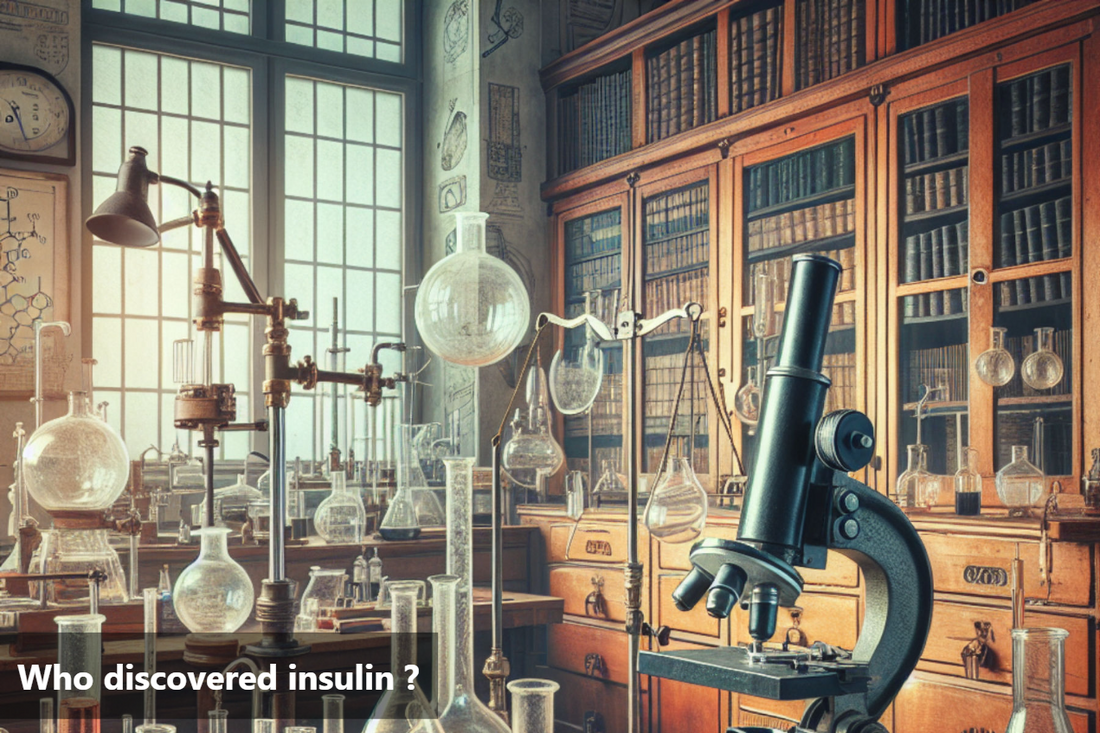Insulin is a crucial hormone in managing diabetes, playing a vital role in regulating blood sugar levels. Discovered in the early 1920s, insulin's impact on diabetes treatment has been monumental. Before its discovery, diabetes was a life-threatening condition with limited treatment options. However, the introduction of insulin revolutionized the field of medicine and significantly improved the lives of individuals with diabetes.
Frederick Banting and Charles Best are credited with the discovery of insulin, pioneering a breakthrough that transformed the way diabetes was managed. Their work not only saved countless lives but also laid the foundation for further advancements in diabetes treatment and research.
Understanding the significance of insulin in diabetes care is essential for both patients and healthcare professionals. By acknowledging the pivotal role of insulin, individuals with diabetes can better comprehend the importance of medication adherence and lifestyle modifications in effectively managing their condition.
Discovery of Insulin
Identifying the Problem: In the early 20th century, diabetes was a poorly understood and often fatal disease. Scientists knew that the pancreas played a role in diabetes but didn't fully understand how.
Inspiration Strikes: In 1921, Canadian scientist Frederick Banting had the idea to isolate the pancreatic digestive secretions that destroy insulin in the pancreas. He believed that if these digestive secretions could be blocked, insulin might be preserved.
Team Formation: Banting approached Professor John Macleod at the University of Toronto for laboratory space and resources. With Macleod's support, Banting recruited Charles Best, a young medical student, to assist him.
Animal Experiments: Banting and Best began their experiments using dogs as test subjects. They tied off the pancreatic ducts of the dogs, which prevented the secretion of digestive juices, thus preserving the insulin-producing cells.
Isolation of Insulin: Banting and Best then extracted insulin from the pancreases of these dogs. They successfully isolated a substance that could lower blood sugar levels.
Human Trials: With the help of biochemist James Collip, the insulin extract was refined to be safe for human use. The first successful human trial of insulin occurred in 1922 when a young diabetic patient named Leonard Thompson was injected with the extract.
Medical Breakthrough: The results were dramatic—Leonard's condition improved dramatically, and he lived for many more years with the help of insulin injections.
Recognition and Impact: Banting, Best, and Macleod were awarded the Nobel Prize in Physiology or Medicine in 1923 for their discovery. The discovery of insulin revolutionized the treatment of diabetes, transforming it from a deadly disease to a manageable condition.
Legacy: The discovery of insulin remains one of the most significant breakthroughs in medical history, saving countless lives and providing hope for millions of people living with diabetes worldwide.
Insulin's Legacy: Improving Health
The discovery of insulin stands as a monumental breakthrough in the field of medicine, revolutionizing the treatment of diabetes and saving countless lives. The incredible impact of this discovery continues to shape the landscape of diabetes management to this day.
The profound significance of insulin's discovery cannot be overstated. Before its identification, diabetes was a virtual death sentence. Individuals with diabetes faced a grim prognosis, often succumbing to the ravages of the disease. The advent of insulin, however, transformed this narrative, offering newfound hope and life to those previously facing dire circumstances.
Moreover, the ongoing impact of insulin on diabetes treatment is immeasurable. Thanks to the pioneering work of those who discovered and developed this life-saving hormone, individuals living with diabetes can effectively manage their condition, maintain healthy blood sugar levels, and lead fulfilling lives. The legacy of insulin serves as a testament to the power of medical innovation and the immense potential for improving the quality of life for those with chronic illnesses.
FAQs
-
Who discovered insulin?
Frederick Banting and Charles Best are credited with the discovery of insulin in 1921.
-
What led to the discovery of insulin?
The need to find a treatment for diabetes and the groundbreaking research by Banting and Best led to the discovery of insulin.
-
When was insulin first used to treat diabetes?
Insulin was first used to treat diabetes in 1922 following successful testing on humans.
-
How has the discovery of insulin impacted the treatment of diabetes?
The discovery of insulin revolutionized the treatment of diabetes and has since saved countless lives.
-
Who else was involved in the discovery of insulin?
Other key contributors to the discovery of insulin include James Collip and John Macleod who provided essential expertise and support during the research process.
-
What other contributions did the researchers make to diabetes treatment?
Banting, Best, and their team not only discovered insulin but also developed methods for extracting and purifying the hormone for medical use.
This Blog post is an initiative by DiabeSmart, to provide accurate and Nutritionist / Doctor approved information related to Diabetes. DiabeSmart is India's first Food brand designed specifically for Diabetics, that has been clinically tested on Diabetics and Pre-Diabetics to deliver 55% - 70% lower Sugar spikes. DiabeSmart is part of Lo! Foods - India's leading brand for Everyday Functional Health foods.













